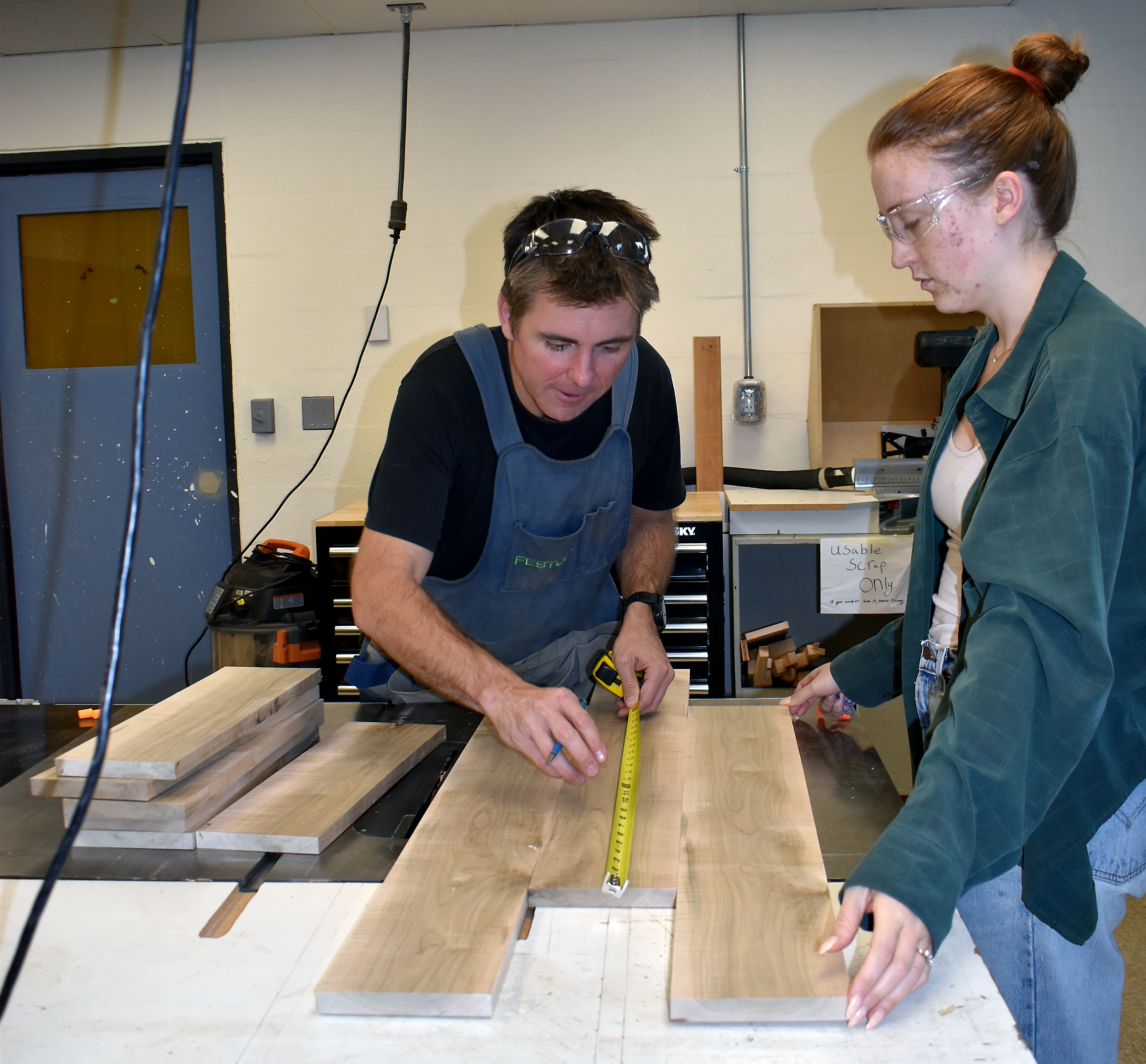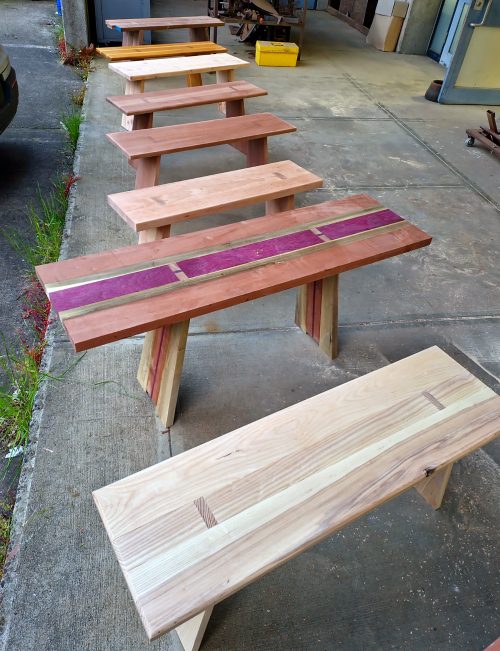This content was published: November 2, 2022. Phone numbers, email addresses, and other information may have changed.
Woodworking faculty and students are excited to be back on campus
Photos and Story by Misty Bouse
After years without face-to-face interaction due to the pandemic, things are returning to a more normalized feel at Portland Community College.

Academic Pathways: Art & Communication
- This woodworking class is part of the Interior Design Program. PCC offers an associate degree in interior design for residential work, as well as certificates focused in kitchen and bath planning, furnishing sales and accessible design. Interior design is part of the Art & Communication academic pathway, which leads to careers in creative professions and offers life-enriching learning to apply toward a four-year degree.
This is especially true for students in the arts. Interior Design Program instructor Jon DeLeonardo and art support technician Myra Day have developed new practices from teaching remote classes over the past two years, and the lessons they learned are being applied to their in-person classes this academic year at the Sylvania Campus in Southwest Portland.
“The way we study these days – hybrid – is a mirroring of how the world is working, like remote viewing of client job sites,” said DeLeonardo, who works full-time as an architect as he teaches part-time at PCC. “I recently observed a concrete pour in Montana from my home office.”
Likewise, Day added, “During the pandemic, I collaborated on a Florida museum exhibit build from Portland, but before, I would’ve flown there.”
Some of the things they developed included DeLeonardo recording a series of how-to videos for the course “Introduction to Woodworking.” While it was accessible to most, he and the team were inspired to deliver even more. They wanted to support the design students who were asking for in-person learning as some lacked access to computers, tools or work space – and many were feeling isolated. They also varied in their basic shop skills and tool know-how.
Because of the expensive price of wood, some students had to glue together lumber to create the appropriately sized pieces to use for their projects. In addition, many had to borrow tools from friends and family, or work on projects in unconventional spaces, or not at all. It was clear that faculty needed to return to campus so students had the resources and facilities at their fingertips to earn their degrees.
With departmental support, the faculty first hosted in-person bench-making classes last spring. About a dozen students signed up for the one-day-a-week class with a weekend open lab. Today, students have overcome any hesitancy and happily focus solely on their projects and working with classmates. More experienced students help newcomers with tools in the Sylvania Campus shop, building a sense of belonging and fun.
“People have the guts and courage to just go for it, so we celebrated with a student delegated as DJ … somedays it was Mozart cranked up!” DeLeonardo said.

‘Introduction to Woodworking’ students learned how to design and fabricate customized furnishings, an interior design must-have skill.
“Being in-person allows for chance conversations and connection,” he added. “They give feedback and socialize. It builds not just a handmade bench but actual community and the student.”
Day said she has seen how the students have embraced returning to campus to construct the colorful benches and how an old-school shop class empowers their learning.
“This class allows students to get hands-on and change their own lives,” Day said. “In a safe place, they conquer their fear and familiarize themselves with tools and it helps them learn new skills.”
As a result of the classes, each students’ bench is unique. While the design is the same — similar scale, parts and joinery — no two are alike.
Both instructors, who admit to being building enthusiasts, love what they have seen in their classes. Day, who started at PCC in 2016, is looking at how to be more adaptive and accommodate even greater differences in college spaces, including supporting art students with vision challenges and more.
DeLeonardo arrived at PCC in 2017 who, as a practicing architect, focuses his work on project-based learning.
